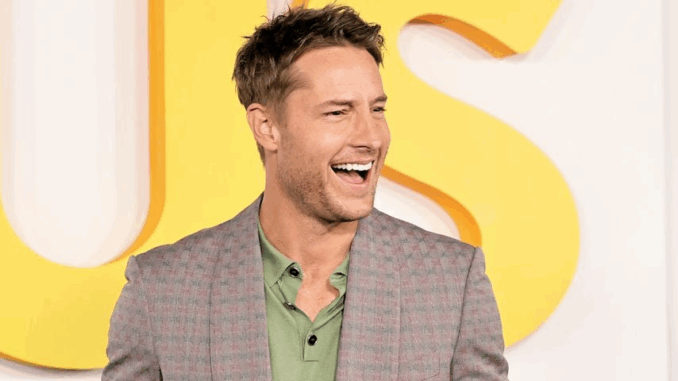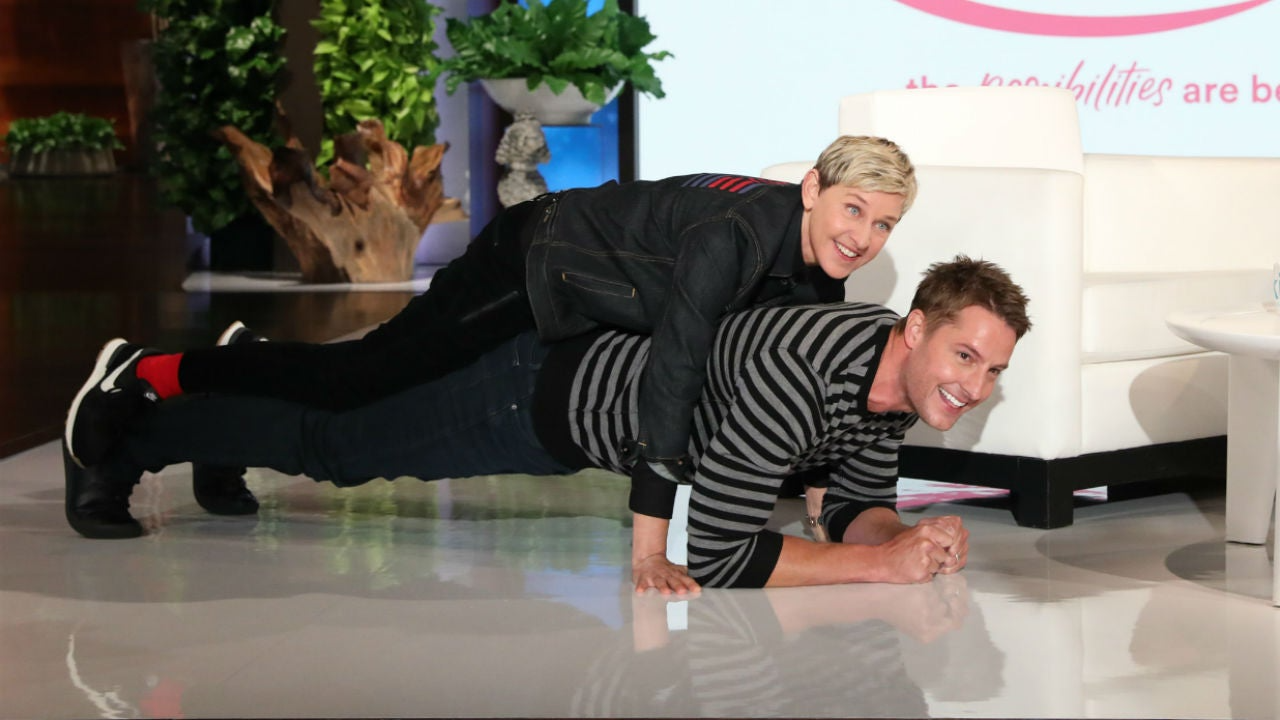
Beyond the Spotlight, the Actor Devotes Time and Resources to Causes Close to His Heart
While Justin Hartley is widely recognized for his compelling roles on screen—from emotionally complex Kevin Pearson in This Is Us to rugged tracker Colter Shaw—there’s a less-publicized but deeply authentic side to him that deserves the spotlight: his philanthropic work.
Unlike many celebrities who promote charitable involvement with flashy campaigns and press releases, Hartley approaches giving back with the same core values that define his acting: sincerity, consistency, and humility. He doesn’t perform his generosity for the camera—he commits quietly, steadily, and with purpose.
In this article, we explore Justin Hartley’s involvement in causes he believes in, how he uses his platform responsibly, and why his low-key but impactful philanthropy is a reflection of his deeper character.
A Heart for Children and Family Services
One of Hartley’s most enduring causes is children’s welfare, particularly in the areas of education, abuse prevention, and foster care support. He’s worked closely with organizations like:
-
The Children’s Hospital of Los Angeles
-
RaiseAChild, which supports LGBTQ+ individuals in fostering and adoption
-
Youth Villages, an organization helping children from traumatic backgrounds find stability and family
Hartley has often said that becoming a father changed his relationship to these causes. “When you become a parent, your entire worldview shifts,” he shared in an interview. “You start to see every child as someone’s entire world. And if they’re in pain, we have to care.”
He has hosted charity galas, appeared in fundraising PSAs, and made significant personal donations—all without turning the spotlight back on himself.
Supporting Veterans and First Responders

Hartley’s respect for veterans and first responders is not performative—it’s ingrained. As someone who has portrayed military personnel and emergency workers onscreen, he makes a concerted effort to honor those roles in real life.
He’s collaborated with Wounded Warrior Project, Homes For Our Troops, and participated in Stand Up for Heroes, a benefit for injured veterans. In 2022, Hartley quietly visited a VA hospital in California, spending hours speaking with patients, taking photos, and listening to their stories—without inviting press coverage.
His father was in law enforcement, and Hartley has spoken about growing up in a household where service was deeply respected. “My dad wore a badge. He wasn’t a TV hero—he was the real kind,” Hartley once said. “That gave me a sense of how real courage works.”
Environmental and Community Advocacy
Though not known as an environmental activist in the Hollywood sense, Hartley has shown consistent support for sustainable living, wildlife protection, and urban conservation. He’s participated in charity golf tournaments that benefit reforestation programs and clean water initiatives.
He’s also lent his name to local causes in Los Angeles and Illinois—his home state—supporting food banks, literacy programs, and school arts funding.
In 2023, Hartley made a donation to fund after-school drama programs for underprivileged kids in Burbank, a gesture that went mostly unreported but had a direct and lasting impact on the local community.
Mental Health Advocacy Through Storytelling
Rather than becoming a spokesperson for a mental health organization, Hartley has channeled his advocacy into the roles he chooses and the stories he tells.
Kevin Pearson’s battles with addiction, grief, and self-worth resonated deeply with viewers struggling with their own emotional health. Hartley embraced the responsibility of that representation with grace.
“I started getting letters from people—men especially—saying that Kevin’s breakdown helped them go to therapy or talk to their kids,” he shared in an interview with The Hollywood Reporter. “That kind of feedback changes how you see your work.”
He’s since become an unofficial ambassador for mental health awareness, often speaking about the importance of therapy, vulnerability, and breaking the stigma—particularly for men.
Why He Doesn’t Broadcast It All
Perhaps the most defining feature of Justin Hartley’s charitable work is how understated it is. He doesn’t center himself in the narrative. He doesn’t use causes as branding. He does the work—often without cameras or press—because he believes in it.
This aligns with a broader philosophy he’s shared in interviews: “I don’t think doing good things should be about credit. It should be about impact. If you help someone and no one knows about it, it still matters.”
In an industry often consumed with image and self-promotion, Hartley’s approach stands out as a kind of quiet rebellion—a return to purpose over publicity.
Inspiring Fans to Follow Suit
Despite not broadcasting every philanthropic gesture, Hartley still inspires action among his fanbase. Several of his fan clubs have launched annual donation drives in his name, supporting everything from children’s hospitals to animal rescues.
He often reposts their efforts, gives thanks without ego, and encourages others to join—not because he’s the face of a cause, but because he believes in collective kindness.
One fan from Michigan wrote, “I started volunteering at a food pantry because Justin Hartley mentioned once that small efforts make big changes. He never made it about himself, and that’s what made it stick.”
Conclusion: A Celebrity Who Leads by Quiet Example
Justin Hartley may not be the most vocal celebrity in philanthropy, but his impact is no less significant. Through consistent, genuine involvement with causes ranging from children’s welfare to mental health and veteran support, Hartley proves that integrity speaks louder than spectacle.
His actions remind us that doing good doesn’t require a campaign or a spotlight—it requires intention, empathy, and commitment.
In an era of curated virtue signaling, Justin Hartley’s approach is refreshingly real. He doesn’t perform generosity—he lives it.
And perhaps that’s the most powerful statement he’s ever made.
